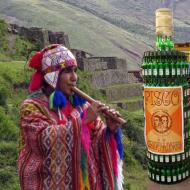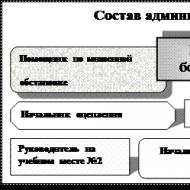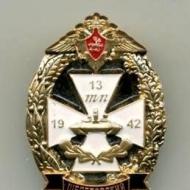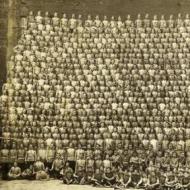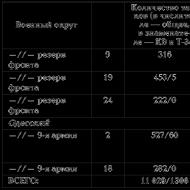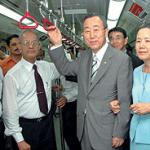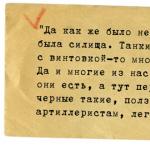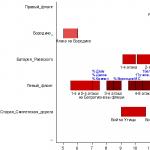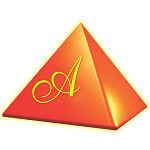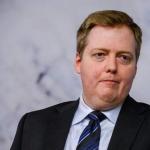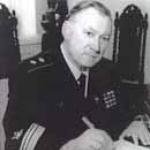
UN Secretary General Ban Ki-moon: biography, diplomatic activities. New UN Secretary General Guterres: biography, family, credo, why they were elected, what to expect UN Secretary Ban Ki-moon
UN Secretary General since 2007
Eighth Secretary-General of the United Nations (since January 1, 2007), succeeding Kofi Annan. A career diplomat, he previously served as Minister of Foreign Affairs and Foreign Trade of the Republic of Korea.
Ban Ki-moon was born on June 13, 1944 in the city of Chungju, North Chungcheong Province, in the future territory of the Republic of Korea. In 1962, as part of the American Red Cross program, Pan visited the United States, where he met with President John Kennedy. According to Pan, this meeting led him to consider a diplomatic career. In 1970, Ban graduated from Seoul National University with a bachelor's degree in international relations. Later, in 1985, he received a Master of Public Administration from the John F. Kennedy School of Government at Harvard University.
Since 1975, Ban Ki-moon has worked in the UN department of the Ministry of Foreign Affairs of the Republic of Korea. Over time, he became the first secretary of the country's permanent mission to the UN in New York, then director of the UN department in the central office of the ministry in Seoul. In 1996, he was appointed chief adviser to the president on national security issues. In 1999, as Ambassador of the Republic of Korea to Austria, Ban chaired the preparatory committee for the Comprehensive Nuclear-Test-Ban Treaty Organization (CTBT). In 2000, he was appointed Under Secretary for Policy Planning and Director General of the Department's Americas Division.
On September 12, 2001, the day after the terrorist attacks in New York and Washington, the 56th session of the UN General Assembly began under the chairmanship of South Korea. Ban served as chief of staff to the chairman of the GA (that is, the President of the Republic of Korea) and contributed to the prompt adoption of the GA resolution condemning the September 11 terrorist attacks. He came up with a number of initiatives to streamline the work of the GA during the crisis.
In January 2004, Ban headed the Ministry of Foreign Affairs and Foreign Trade of the Republic of Korea. One of the main areas of his work was relations between the two Korean states. Ban adhered to the idea of a peaceful Korean Peninsula. Back in 1992, as Special Advisor to the Foreign Minister, he served as Vice-Chairman of the Joint North-South Nuclear Control Commission following the adoption of the Joint Declaration denuclearizing the Korean Peninsula. Ban also played a key role in the six-party talks to resolve the situation surrounding the DPRK's nuclear program, in particular in the adoption of a joint statement on resolving the North Korean nuclear issue in September 2005. During the period that Ban led the ministry, the Republic of Korea was criticized for not being sufficiently committed to protecting human rights in the DPRK.
Ban named the settlement of relations between the world community and the DPRK as one of his main priorities in 2006, when he emerged as a contender for the post of UN Secretary General. Pan's main rival was Indian Shashi Tharoor. During the lengthy election process, Ban made calls for reform of the UN, but refrained from laying out specific plans. In October 2006, Ban was elected to the post of Secretary General and on January 1, 2007, took up his duties in this post, which Kofi Annan vacated after ten years of leading the organization.
On June 21, 2011, the UN General Assembly re-elected Ban Ki-moon as head of the organization for a second term, until December 21, 2016 [
The magazine "Vlast" and the radio station "Echo of Moscow" continue the joint project "Authorities". This time we will talk about South Korean Foreign Minister Ban Ki-moon, who was elected last week as the new UN Secretary General.
Last Monday, the UN Security Council voted on the candidacy of a new UN Secretary General. However, by that time no one doubted that the most powerful international organization in the world would be headed by South Korean Foreign Minister Ban Ki-moon.
At first, the 62-year-old diplomat from South Korea was not among the favorites, although he was suitable for this position in all respects: he represents an Asian country (according to the principle of rotation of continents, it was the representative of Asia who should have taken the helm of the UN), is well educated (he received a master's degree in public administration at Harvard University), is fluent in English and French, and has 40 years of experience in diplomatic service in both national and international structures.
However, Ban Ki-moon's competitors were much brighter politicians. One of them is Kofi Annan’s current deputy, Indian diplomat Shashi Tharoor. On the sidelines, he was called the favorite - firstly, because of his extensive experience at the UN, and secondly, because he is known as a strong supporter of reforms of this organization. But Shashi Tharoor dropped out of the fight: permanent Security Council member China opposed his candidacy, fearing India’s strengthening in the region.
Another serious competitor of the Korean was the Deputy Prime Minister of Thailand, Surakiart Satiratai, who had to withdraw his candidacy because during the elections there was a military coup in his homeland.
As a result, Ban Ki-moon remained the only candidate for the post of UN Secretary General, for whom 14 of the 15 non-permanent members of the UN Security Council voted in the mid-term elections.
During the election campaign, several scandalous publications appeared in the Western media that, in addition to the gift of persuasion, Ban Ki-moon used the economic opportunities of his country, agitating members of the Security Council to vote for him. After Ban Ki-moon announced his candidacy for the post of Secretary General in February 2006, he began to actively visit those countries on whose vote his future fate depended. He signed lucrative trade agreements with Europeans and promised generous economic assistance to developing countries. In May, for example, he visited Tanzania, one of the current members of the Security Council, and promised the Tanzanians $18 million for an educational program. He proposed making 2007 the Year of Africa in South Korea and tripling the amount of funds allocated by the South Korean government to help poor African countries to $100 million by 2008.
It is also important that the South Korean diplomat was supported by all five permanent members of the Security Council. And here the most important thing was the approval of his candidacy in the United States. US support is a decisive factor for any UN Secretary General. Kofi Annan's predecessor, the Egyptian Boutros Boutros-Ghali, was forced to resign from office precisely because of the conflict with the United States. And Kofi Annan himself was a protégé of Great Britain and the United States from the very beginning. Ban Ki-moon was initially “nobody’s” candidate, and therefore had to win the favor of everyone.
It was important for Washington to find a candidate who would carry out UN reform as the Americans imagine it. Recently, American Ambassador John Bolton outlined the field for reform very clearly: “The UN Secretariat building in New York has 38 floors. If you remove 10 of them, you won’t notice much of a difference.” UN staff reductions are a significant problem for the United States, especially considering that America pays 25% of all bills for this international organization. “If I am elected secretary general, I will try to do everything to make the activities of the secretariat more professional, more efficient and at the same time more transparent. I think it is necessary to reduce the staff,” said Ban Ki-moon. This statement earned him the sympathy of Washington. An important fact for the Americans was that the nominee of South Korea twice headed his country’s embassy in the United States, and in 1990-1992, the department of the Korean Foreign Ministry for American Affairs.
Diplomat

When Ban Ki-moon was 18 years old, he won a trip to the United States in a school competition, where he met then-President John F. Kennedy. When he returned home, he was greeted as a hero. His classmates were proud of his success. One of the girls who greeted Pan with bamboo sticks (a symbol of good luck in Korea) in her hands (her name was Yu Sun Taek) later became his wife. The trip to the States made an indelible impression on Ban Ki-moon. It was then that he decided to become a diplomat.
Apparently, young Ban Ki-moon had financial opportunities to receive a prestigious education. The future diplomat was born on June 13, 1944 into a famous and wealthy family. He graduated from Seoul University in 1970 with a bachelor's degree in international relations. Then, as was customary among South Korean golden youth, he continued his education abroad, enrolling in the John F. Kennedy School of Government at Harvard University. Upon returning home, Pan went to work at the Foreign Ministry. The young diplomat was sent to serve in India.
Ban Ki-moon made a rapid career at the Foreign Ministry. In 1995, he was already deputy minister. In 1996 - National Security Advisor to the President. True, in 1998 he was suddenly demoted to the level of South Korean Ambassador to Austria. However, it is possible that the country simply needed to strengthen its European direction with proven personnel. One way or another, three years later Ban Ki-moon was entrusted with a very responsible task - to head the office of the chairman of the UN General Assembly during South Korea's chairmanship of the 56th session of the General Assembly.
Finally, Ban received the highest post of his career in January 2004, becoming Minister of Foreign Affairs.
Buttered Eel
Pan's colleagues attribute his successful promotion to his ability to smooth corners. For this, the South Koreans themselves gave him the nickname Butter Eel.
“A quiet, gentle person. He does not raise his voice, he is inclined to listen to other people’s opinions,” says Georgy Kunadze, who, as Deputy Foreign Minister of Russia, met with Ban Ki-moon. “He has authority and knowledge. But does Ban have enough Will Ki-moon have the toughness and willpower to cope with such a complex mechanism as the UN?”

Ban Ki-moon was often reproached for lacking the charisma necessary for a public politician and for being too soft. “From the outside I may look soft, but I have inner strength when necessary. I have always been very decisive,” the head of the Korean Foreign Ministry responds to such reproaches.
Ban Ki-moon's position is further complicated by the fact that he became UN Secretary General during a very difficult period. On the day of his election, North Korea tested a nuclear device. Many believe that Pyongyang chose this particular day for a reason. “The North Korean leadership is furiously jealous of South Korea and any of its successes. I wouldn’t be surprised if the northerners timed this explosion just in time for the vote at the UN,” says Georgy Kunadze. “Now for Ban Ki-moon as Secretary General, almost the first issue on the agenda will be the solution to the North Korean nuclear problem. It is clear that after the tests the issue will go straight to the Security Council. It is clear that Ban Ki-moon will not have an easy life in this regard." However, the future general secretary did not shy away from the challenge of his northern brothers, saying that he would certainly visit Pyongyang as soon as he took office.
This is not the first time that Ban Ki-moon has dealt with the North Korean problem. In 1992, he was vice chairman of the joint North and South Korean Nuclear Control Commission. The result of the work of this commission was a joint declaration on turning the Korean Peninsula into a nuclear-free zone. In 2005, in Beijing, the head of the South Korean Foreign Ministry also played a key role during the fourth round of six-party talks on the North Korean issue. UN diplomats note that although the nuclear-free zone project was never implemented, South Korea did everything it could.

People familiar with the Korean diplomat note that he is characterized by quick reactions and that he is an open person with liberal views. Unlike many other foreign ministers, Ban Ki-moon prefers informal human relations. One senior Russian diplomat described how Ban Ki-moon bumped into one of the Russian minister's aides in the hallway before meeting Sergei Lavrov. And although Mr. Pan was not familiar with the Russian diplomat, who was also of lower rank than him, the Korean hugged him and offered to contact him directly with any questions. Russian diplomats and Korean scholars who worked with Ban Ki-moon argue that he belongs to a new type of Korean elite. Unlike most Korean officials, Ban Ki-moon is interested in issues that are far from Korean interests themselves.
It is clear that the new UN Secretary General, whose name is not yet mentioned in daily news reports, will face a lot of problems: recognition of Kosovo's independence, a humanitarian catastrophe in Sudan, the Iranian and North Korean nuclear problems, UN reform. But as one of the experts at the UN said, “Ban Ki-moon, who is not very famous in the world, will still show himself. All UN secretaries-general come as dark horses, and leave as politicians with a big world name - that’s the kind of position it is.”
NARGIZ ASADOVA
|
That's what Ban Ki-moon said
About Russia:"Russia plays a constructive role not only in resolving the North Korean nuclear problem, but also in stabilizing the situation in Northeast Asia." About the UN:"I am optimistic about the future. I am confident that the best days of our global organization are yet to come. Confidence in the face of hardship is inherent in all Koreans. Our country was literally rebuilt from the ashes of war, and this was achieved through hard work, determination and the help of our friends "at the UN. Now it's time to pay back our debts. We are ready to become one of the most ardent apologists for the values of the UN, be it peace, development or human rights." About his predecessor and his tasks:“UN Secretary-General Kofi Annan, unfortunately, has not been able to visit North Korea over the past ten years. Since my experience and understanding of the problems of inter-Korean relations, including the DPRK problem, is much broader, it seems to me that I would be able to resolve this issue more effectively, while serving as Secretary General." |
|
This is what they said about Ban Ki-moon
Former US Deputy Secretary of Defense Ashton Carter:"He's a master consensus builder. He's not a rabble-rouser. The job of UN Secretary General is a job where, to be effective, you have to be very collaborative. And he's just that kind of person. He's at the right distance from the United States to be effective." at the UN." US Ambassador to the UN John Bolton:"We respect Foreign Minister Ban Ki-moon. We know him well from his work in Washington and New York and highly value him as a professional and as a person." Former adviser to US President Bill Clinton on North Korea Wendy Sherman:"He can add credibility to the DPRK by visiting the country as UN secretary general. He can also be a counterweight that the United States may or may not value." |
Would you like our country to be ruled by a person like Ban Ki-moon?
No 14.6%
Yes 85.4%
About the most anti-American leader of the Islamic world, Iranian President Mahmoud Ahmadi-Nejad:
October 19 on radio "Echo of Moscow" at 22.00 in the program "48 minutes".
October 23 in the magazine "Kommersant-Vlast".
Place of Birth. Education. Ban Ki-moon is from the Republic of Korea. He became the eighth Secretary-General of the United Nations at the end of 2006, succeeding Ghanaian Kofi Annan. At that time, he had 37 years of experience in the Korean government, as well as in the international arena. Before the vote, all five permanent members of the UN Security Council spoke in favor of Ban Ki-moon taking Annan's place.
He received a bachelor's degree in international relations from Seoul National University in 1970. In 1985, he received a Master of Public Administration from the Kennedy School of Government at Harvard University.
Career. At the time of his election as Secretary General of the United Nations, Ban Ki-moon was the Minister of Foreign Affairs and Foreign Trade of South Korea. Over the course of a number of years of work in the ministry, he was sent to Delhi, Washington, Vienna and was responsible for a number of areas. This included serving as Advisor to the President for Foreign Policy, Chief Advisor to the President for National Security Affairs, Under Secretary for Policy Planning, and Director General of the Americas Division. His work was guided by the vision of a peaceful Korean Peninsula playing an increasingly broader role in restoring peace and prosperity to the region and the world.
Ban Ki-moon has a long-standing relationship with the United Nations, dating back to 1975 when he worked in the UN department of the Ministry of Foreign Affairs. Over the years, work in this area has expanded. He served as First Secretary of the Permanent Mission of the Republic of Korea to the United Nations in New York, Director of the UN Office at the ministry's headquarters in Seoul, and Ambassador in Vienna. During this period, in 1999, he was also Chairman of the Preparatory Commission for the Comprehensive Nuclear-Test-Ban Treaty Organization.
In 2001-2002 As chief of staff to the President of the General Assembly, who was the representative of the Republic of Korea, Ban Ki-moon facilitated the swift adoption of the first resolution of this session, condemning the terrorist attacks of September 11. He put forward a number of initiatives aimed at strengthening the functioning of the Assembly. Largely thanks to Ban Ki-moon, the session, which began in an atmosphere of crisis and confusion, became very productive, and a number of important reforms were approved.
Actively participated in resolving issues related to relations between the two Koreas. In 1992, as Special Advisor to the Secretary of Foreign Affairs, he served as Vice-Chairman of the Joint North-South Nuclear Control Commission following the adoption of the joint declaration declaring the Korean Peninsula a nuclear-weapon-free zone. In September 2005, as Minister of Foreign Affairs, he took part in negotiations aimed at ensuring peace and stability on the Korean Peninsula. Then, at the six-party talks, a joint statement was adopted on resolving the nuclear issue related to North Korea.
Views and assessments. Ban Ki-moon is no stranger to increased attention to his person. As the BBC notes, he was at the center of events during the confrontation over North Korean nuclear weapons development, when six countries tried to convince Pyongyang to abandon its nuclear plans. However, the negotiations failed and diplomacy did not bring results. This raised doubts about Ban Ki-moon's leadership qualities and his willingness to confront the United States.
Speaking about his tasks as UN Secretary General, Ban Ki-moon noted that the organization “should promise less and deliver more.” He intended to carry out organizational reform of the UN, which would allow “to regain the trust of member countries.”
A workaholic who did not allow himself a vacation for two years before his appointment as UN Secretary General, Ban Ki-moon is the personification of a successful Korean official. He reached the top without making enemies, favoring backroom deals rather than grand public gestures.
In South Korea, Ban Ki-moon's appointment was perceived as recognition of his outstanding success in transforming the country from a war-ravaged dictatorial state into one of Asia's prosperous democracies.
Ban Ki-moon had to lead an organization with an annual budget of $5 billion, whose reputation was marred by scandals over the corruption of its representatives.
On October 13, 2016, the UN General Assembly approved the former Prime Minister of Portugal as Secretary General of the organization. Guterres succeeded Ban Ki-moon as UN Secretary-General on January 1, 2017.
On September 14, 2017, at the 131st session of the IOC, he was elected Chairman of the Ethics Commission of the International Olympic Committee.
Prizes and awards. Recognized by many national and international prizes, medals and awards. In 1975, 1986 and 2006. he was awarded the highest order of the Republic of Korea - the Order of Merit.
Family. Ban Ki-moon and his wife, Ms. Yoo (Ban) Soon-daek (they met in 1962 when they were high school students) have a son and two daughters.
[literary version]
BAN KI MOON:
“I keep reminding myself that there are many challenges in the world, so every new day I start work as if it were my first day as UN Secretary General...”
Bachelor of International Relations.
Master of Public Administration.
From 1987 to 1990, Counselor, Consul General at the Embassy of the Republic of Korea in the USA.
From 1998 to 2000, Ambassador of the Republic of Korea to Austria.
From 2001 to 2002, representative of the Republic of Korea to the UN.
From 2004 to 2006, Minister of Foreign Affairs and Foreign Trade of the Republic of Korea.
Since January 1, 2007, UN Secretary General.
Modern world. Restless. Anxious. Every day people die on the planet. Natural disasters. Hunger. Wars. The 21st century has not spared humanity from armed conflicts, clashes, and coups. It seems that people test their strength every day.
More than 6 billion people living on planet Earth need international institutions that help warring parties reach agreement with each other. Today there are over two thousand international organizations, but for more than half a century the main international structure has been the United Nations. 2008 marks the 60th anniversary of the opening of the UN Information Center in Moscow.
Over the years of the UN's existence, 8 secretaries general have been replaced.
Our interlocutor is the 8th Secretary General, prominent Korean diplomat Ban Ki-moon.
Mikhail GUSMAN: Mr. Secretary-General, we are very pleased to have the opportunity to speak with you at the headquarters of the United Nations. What role plays the UN in the modern world?
Ban Ki Moon: The UN deals with three main issues. These are maintaining peace, security and respect for human rights. The UN also deals with all issues that affect modern conflicts and global challenges, from poverty eradication and sanitation to preventive diplomacy.
The UN headquarters building is crowded. The UN Secretariat is located here, where 8,900 employees come to work every day. And another 1,100 journalists have permanent accreditation. Generally, More than 75 thousand employees work in UN system organizations around the world Human. Over 63 years, the number of countries belonging to the UN has increased almost 4 times! Today the UN family consists of 192 states, of which 149 are developing countries, home to 82 percent of the world's population. A representative of every country, even one as tiny as Monaco, can find its flag here!
The Second World War confronted governments with different countries the question of the need to create an international security organization.
February 11, 1945. Yalta. The leaders of three countries - Great Britain, USA and USSR - Churchill, Roosevelt and Stalin declared their determination to establish a “universal international organization for the maintenance of peace and security” and announced the convening of the Conference in San Francisco.
1945 25th of April. The last days of the war in Europe. Delegates from 50 countries gather in San Francisco. Different people gather nationalities, religions and continents, determined to create an organization capable of preserving peace and helping create a better life. The delegates are faced with a single common task: to develop a Charter acceptable to all states.
1945 June 25. Two months later. Delegates gather for the last time for a plenary session in the hall of the San Francisco Opera House. The presiding officer, Lord Halifax, presents to the meeting the final draft of the Charter of 111 articles. "We have never “We won’t make a more important decision in life,” he says. In view of the global significance of this event, there is a proposal to retreat from the usual method of voting by show of hands. The question is put to voting - all delegates rise from their seats and continue to stand.
M.G.:What qualities are needed to lead such a complex mechanism as the UN?
P.G.M.: There is no such thing as the hidden, magical power of the Secretary General. I always try to reach an agreement and achieve a result based on consensus. The process of persuasion and dialogue does not stop. Sometimes you have to deal with many issues at the same time. If something is missed, problems and misunderstandings arise, which sometimes affect the authority and trust in the UN.
Representatives of 50 states signed the Charter in alphabetical order. The Chinese delegation arrived first. Its representatives brought their own writing materials - brushes, a stick of dry ink, a mortar and asked for a cup of water. The whole world was waiting for a batch of fresh, thick ink to be prepared. Further there were no delays. Poland, not represented at the Conference, signed the Charter later and became the 51st founding state. From the USSR, the Charter was signed by Andrei Andreevich Gromyko.
1946 January 10. In the Central Hall of the Palace of Westminster in The first General Assembly opened in London.
M.G.:What are the main priorities of the UN now?
P.G.M.: We need to solve the problem of global climate change, develop an approach to the global financial crisis, and help people overcome the food crisis.
Meeting room of the General Assembly. The hall can accommodate 192 delegations - according to the number of UN member countries. Each delegation is allocated six seats - three at the tables for the main delegates and three separately, for deputies. Seats in the hall are distributed as follows: two months before the start of the General Assembly, a basket containing 192 balls is brought to the office of the Secretary General. Each ball bears the name of the country. The Secretary General pulls out one ball. The country indicated on the ball occupies table number one in within one year. Starting from this country, the remaining countries are seated in English alphabetical order.
On January 17, 1946, the first meeting took place in the Palace of Westminster. The Security Council adopted its rules and procedures.
M.G.: The UN Security Council is one of the most authoritative international bodies. What needs to be done to improve its effectiveness activities, and what powers should the Security Council have now?
P.G.M.: The participating countries are close to reaching an agreement that, given the changes that have taken place in the world over six decades, the Security Council should be transformed by expanding its membership. This issue is currently being actively discussed, but a final consensus has not yet been reached.
1946, January 26. The General Assembly adopts its first resolution. Its main themes: peaceful uses of nuclear power energy and the elimination of atomic and other types of weapons of mass destruction. In June of the same year, as one of the ways to implement the decision of the General Assembly, the International Atomic Energy Agency was created.
From the UN Charter. Chapter 15. Article 97: “The Secretariat consists of the Secretary General and such personnel as may be required by the Organization. The Secretary General is appointed by the General Assembly on the recommendation of the Security Council. The General Secretary is the chief administrative officer official of the Organization."
On February 2, 1946, at the session of the General Assembly, he was elected the first Secretary General in UN history. He became a diplomat Trygve Halfdan Li, who headed the Norwegian delegation.
1948 December 10. The UN General Assembly adopts the Universal Declaration of Human Rights. “All people are born free and equal in dignity and rights. They are endowed with reason and conscience and must act towards each other in spirit brotherhood."
“Every person has the right to life, liberty and security of person. These rights belong to you. These are your rights." with this message the United Nations in 1948 addressed citizens around the world.
M.G.:What comes to mind when you think about the day you were elected to the post of UN Secretary General?
P.G.M.: For me personally, it was a great honor. In addition, I realized that this post entails enormous responsibility. I keep reminding myself that the world faces many challenges, which is why I approach each day as if it were my first day as UN Secretary-General.
UN Headquarters. Noon. It is at this time that the regular press briefing begins. It is conducted by an official representative Secretary General for Press Affairs. Journalists find out that takes place in UN missions scattered around the world.
Every day 800 million people go hungry around the world.
150 million children under five years of age are malnourished.
1 billion people live in absolute poverty.
More than a quarter of the world's population lives on less than $1 a year.
day.
The UN World Food Program feeds 83 million people in 80 countries every year.
P.G.M.: I strongly support the measures that industrialized countries are taking to overcome financial turmoil, but at the same time we must not lose sight of the plight of the poorest of the poor. I will continue to speak on their behalf and in their interests.
UN Headquarters. Printing house. She works non-stop. Every day, 80 employees from around the world print over 300 documents in 6 official languages - English, Arabic, Spanish, Chinese, Russian and French. Per year from the printing house The UN has 23 million printed pages!
One of the most important subsidiaries is located in Paris UN - UNESCO. She deals with issues of preserving the world cultural heritage. The UNESCO World Heritage List includes 878 sites of “outstanding universal value” across 145 countries.
Among the priorities of the UN Secretary General are humanitarian questions. Including the development of the Russian language as one of the official languages of the UN in the global information space. About this was the conversation at the UN headquarters with the President of the World Russian Press Association, UNESCO Goodwill Ambassador Vitaly Ignatenko.
1946 The 14th of February. The UN General Assembly decides on the location of the headquarters of the United Nations Nations in the USA. The International Committee receives about 60 applications from different cities and states. But at the end of 1946, John Rockefeller Jr. buys 18 acres of land for $8.5 million Manhattan. According to US law, he does not have the right to donate land organization, therefore offers the UN to rent it for a nominal fee. Since then, once a year the UN transfers 100 dollars per lease of land to the Rockefeller Foundation.
On October 24, 1949, the foundation stone of the current UN Headquarters building in New York was laid. Nineteen months later, on August 21, 1950, Secretariat staff took over their new office premises.
UN Television Studio. Broadcasting is carried out on 4 channels. From here UN staff correspondents transmit breaking news from headquarters to East River to the most remote corners of the globe. Thanks to the studio staff, on the UN website online everyone can watch the debates taking place in the General Assembly and in the Security Council.
M.G.:Speaking of achievements, what you have achieved and what you could achieve,but haven't achieved it yet?
P.G.M.: I am committed to being active on climate change. This question is of decisive importance for all humanity. It affects every aspect of business, affects all citizens of the world and can have far-reaching consequences for the future of planet Earth. This is my number one priority.
Meeting room of the General Assembly. The delegates had just left their seats after the morning meeting. The hall, familiar to millions of television viewers around the world, is unusually deserted. But you can look at the interiors in detail.
The General Assembly met here for the first time at the opening of the seventh regular session on October 14, 1952. Since then The order of the meetings did not change. On the podium in the center sits the Chairman of the General Assembly, to his right is the UN Secretary General, to his left is his deputy. Two monitors constantly show how voting is going on. Special the group provides a list of speakers, regulations are controlled by light bulbs. The speaker on the podium always knows how much time he has to speak. If the red light comes on - limit exhausted!
The President of any country can come to the Assembly and speak during the year.
P.G.M.: Naturally, we do not remove from the agenda all the most important tasks that we have been engaged in and continue to engage in. For example, the humanitarian situation in a number of countries. We have achieved peace and stability in many parts of the planet. We maintain 18 missions in various trouble spots around the world.
Since the first UN peacekeeping mission was deployed in 1948, 130 countries have volunteered nearly one million military and civilian police personnel. They took part in 63 peacekeeping operations. Over the years, a total of two people have died during Blue Helmet operations. with half a thousand people.
P.G.M.: Through the Millennium Development Goals, we must halve the number of people living in poverty by 2015, ensure equal access to primary education, and help prevent many people from developing preventable diseases.
AIDS is rampant in African countries. Number of people infected with HIV annually increases by more than five million. 95 percent of they live in developing countries. The AIDS epidemic affects more than 60 million people. The World Health Organization calls addressing AIDS a public health priority. In recent years, the total cost of fighting AIDS has increased 20-fold.
P.G.M.: Unfortunately, my capabilities are limited; I need full support and cooperation from the rest of the world community. Only this will allow me to fully cope with the responsibilities assigned to me.
The chief administrative officer of the United Nations is named in the Charter as the Secretary-General. His job responsibilities have remained the same for 63 years: to bring to the attention of the General Assembly and the Security Council any problem that may pose a threat to international peace and act as an "arbiter" in disputes between states- members.
In April 2008, the 8th UN Secretary General visited Moscow. Opening the meeting in the Kremlin with Secretary General Ban Ki-moon, Russian President Dmitry Medvedev said: “All talk about the UN crisis is not based on anything; on the contrary, the UN should do everything possible support and develop this platform for coordinating interests. Russia will continue to provide all possible support to the UN.”
M.G.:What does the word “power” mean to you, UN Secretary General?
P.G.M.: The real power lies not with the Secretary General, but with the member countries of the United Nations. The participating country gives the Secretary General a mandate. And the Secretary General must justify this mandate. Power is exercised through a process of constant persuasion. I have to deal with 192 countries to come up with the most acceptable solution. In this - and only in this! — and that is the power of the Secretary General.
For 63 years, the United Nations has had no analogues on the planet. She is dedicated to helping make the world a safer and more comfortable place to live. And the UN is achieving its main goal - for more than 60 years the world has lived without global upheaval. But every minute on the planet people die violent deaths. Their lives are taken away by military conflicts, poverty, diseases, natural disasters... Therefore, the main words of the UN Charter and today do not lose their relevance: “We, the peoples of the united nations, are determined to rid future generations of disasters of war, which twice in our lives brought to humanity unspeakable grief, and to reaffirm faith in fundamental human rights, in the dignity and worth of the human person, in the equality men and women and the equal rights of nations large and small."

